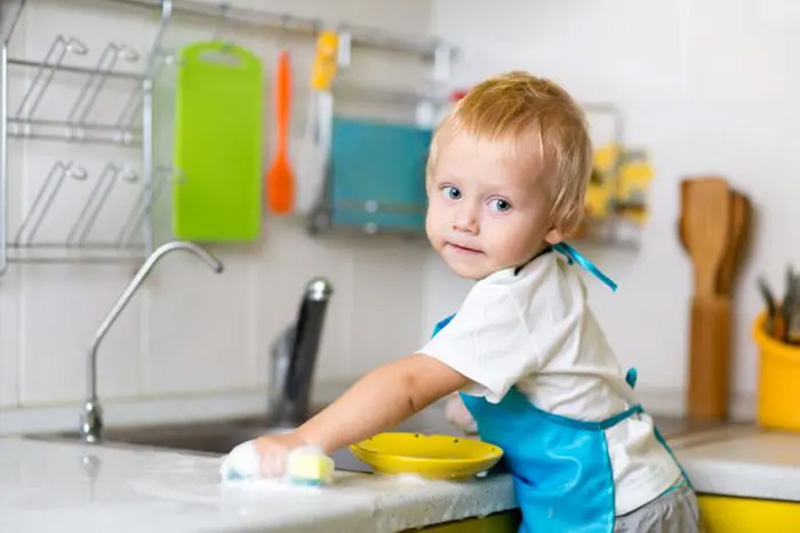
Incorporating responsibilities for children into family dynamics at home is essential to teach them the importance of being part of a team and helping. It also favors the development of motor skills, the creation of habits and organizational skills. In the same way, it promotes their security and self-esteem since they feel capable of achieving it and valued by their parents.
What responsibilities can children have depending on their age?
Depending on the age group, there are tasks that are appropriate and adjust to the degree of autonomy and independence they present. As they grow, it is important not to replace tasks but to add new ones to the list of those you already know how to do. Below we can see a list of tasks sorted by age.
Between 2 and 3 years old:
At these ages they are too young to perform complicated household tasks, but they can already begin to collaborate in simpler activities. Some examples are:
- Pick up your toys
- Throwing things in the trash
- Watering plants
- Put your dirty clothes in the basket
- Eating alone
Between 4 and 5 years old:
At this age they begin to have more height and strength and are already more aware of everything around them. Some examples of tasks are:
- Choosing clothes and dressing only
- Grooming yourself with supervision
- Setting and removing the table with supervision
- Feeding the pet
- Washing dishes with supervision
Between 6 and 7 years old:
They are already starting to be a little more autonomous. Some tasks they can perform are:
- Make the bed
- Organize your desktop
- Prepare your backpack
- Vacuuming
- Remove dust from furniture
Between 8 and 9 years old:
In this age group, children can already carry out more complex tasks, although they will still need adult supervision in those tasks that require more detail or load. Some examples are:
- Bathing alone
- Cleaning the floor
- Caring for the pet
- Prepare breakfast
- Cook simple dishes with supervision
Between 10 and 11 years old:
At this stage children are already fully aware of everything around them and are more responsible and independent. Some tasks that can be added are:
- Clean your room
- Take the pet out
- Cleaning the garden or yard
- Hang clothes
- Caring for a younger sibling
From the age of 12:
Children will already be able to develop all kinds of tasks. They will be more autonomous and independent. Examples of tasks that can be added are:
- Take out the trash
- Make the purchase
- Cleaning glassware
- Sew a button
It is important to keep in mind that not all children have the same rhythm even if they are the same age. We have to adapt the responsibility to the pace they carry and then we can motivate them.
How to work responsibility on children?
To get children to carry out their responsibilities it is important to consider the following:
- Start with the simple and what they like the most: if we choose a fun task that is simple, they will be more motivated when it comes to doing it.
- Be specific: they must understand what exactly we are asking of them.
- Teach and guide: you have to explain how the task will be carried out and go little by little having patience since at the beginning we will have to repeat more times how it is done.
- Do not mark the mistake: at first they are likely to make mistakes so we should not punish them. The most valuable thing is to reinforce their effort and teach them how it is done. To learn more about the side effects and impact of punishment on children there is another blog post called “Punishment and its impact on children and parents”.
- Find space for rest and games: distribute your time well. There are moments in which you help in the responsibilities of home, but also moments of rest and play.
- Give reward: at the beginning it costs more that children want to perform their tasks so we can motivate them with the help of a reward. Some examples can be: playing for a while together, going to the park, being able to eat your favorite dessert, etc.
Here are some general guidelines that can guide you when selecting responsibilities for children according to their age. If you have tried to carry them out and you have difficulty creating habits or managing their behavior, do not hesitate to contact our team. We will be happy to help you.
Laura Maymó Gallurt
Psychologist Col. No B-03427





